Colonial Village housing crisis continues for Haitians, Americans as March deadline looms
Ever since they were displaced from the Colonial Village Apartments on Columbus’ East Side late last year, Evenie Valcourt and her husband have been searching for an affordable place to live with their two children in Columbus.
The family — asylum-seekers from Haiti — was living at Colonial Village when its receivership estate shut down the long-troubled complex in December, citing a need to make urgent repairs. Since then, the family has been living in a hotel room in Gahanna, provided by the city of Columbus through March 31, while they look for a new place to live.
But Valcourt’s search has yielded no results so far. Few units are available in her family’s price range, and those that are available often have application requirements that place them out of reach — like a credit history in the U.S.
“I came to America because life in my country is not good. I'm looking for life. My life is still not easy in America,” Valcourt told The Dispatch in Haitian Creole, using a translator.
Valcourt is not alone. About 520 households — with over 800 adults and 500 children — moved into hotels from Colonial Village. So far only about 15 of those households have found permanent housing, according to the city’s Department of Development. Another 73 households moved directly from Colonial Village into other permanent units.
In other words, less than 15% of all households displaced from Colonial Village have found permanent housing — and there’s less than six weeks left before the city’s support for temporary housing runs out.
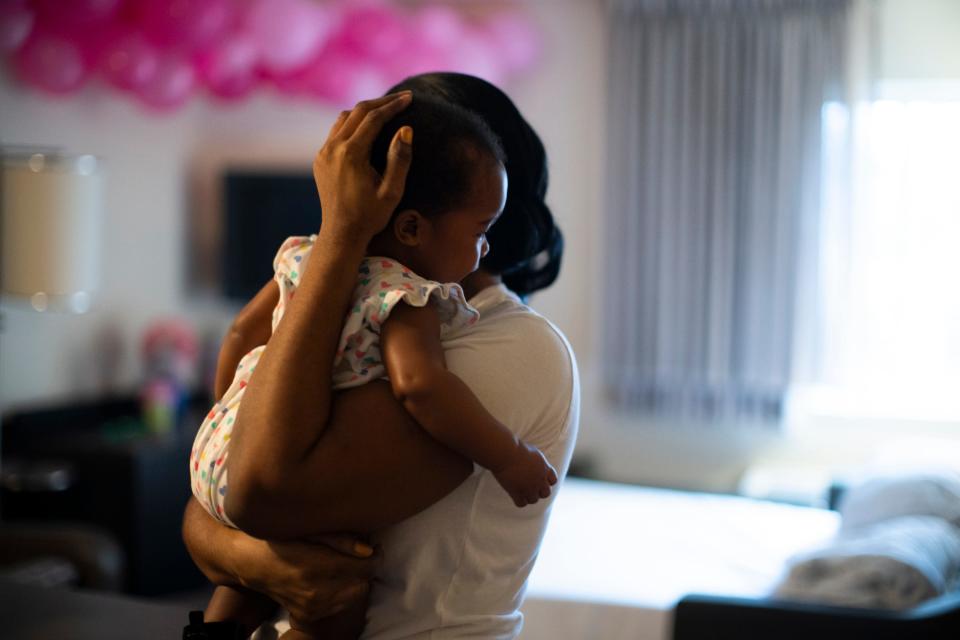
Shannon Isom, CEO of the Community Shelter Board, which has been coordinating the temporary housing, called the looming March 31 deadline alarming.
“There are multiple barriers (to finding housing). … I don't know if I have yet the right answer for what is going to happen to 1,300 people. What I do know is that our shelter system is already fragile,” she told The Dispatch.
Hannah Jones, deputy director for community development at the Development Department, called finding new housing a “monumental task” requiring community engagement.
“For the families who are still working to identify housing, we know that the rate of progress does not feel quick enough. But we have moved quickly, and we consider each family moved to permanent housing a success,” she said.
The majority of those displaced from Colonial Village are recently arrived Haitians, but a number of long-term Columbus residents also lost homes at Colonial Village, and they, too, are having trouble finding affordable housing, city leaders said.
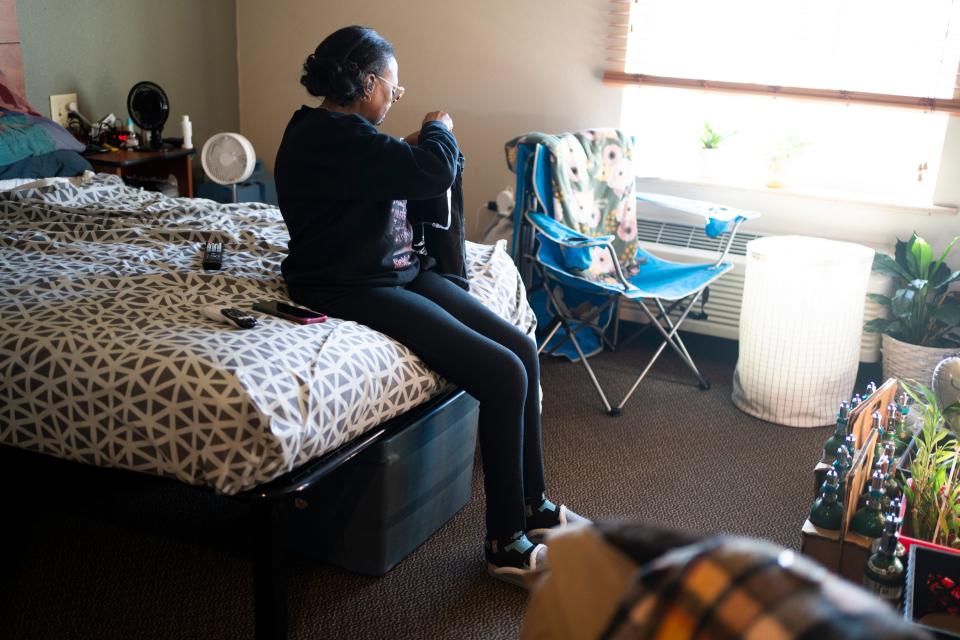
City has committed $4 million for temporary housing for Colonial Village residents
The Colonial Village complex, which contains 508 units spread across dozens of brick buildings on more than 20 acres, had a long history of housing code violations for problems ranging from bed bugs to rodents, water damage and unsecured vacant units. Amid a foreclosure case brought against the owner by its creditor, the complex was put into court-mandated receivership in March 2022.
In mid-October 2023, the receivership estate informed the city that it discovered a large number of people living in units that lacked official leases or even basic amenities like heat and hot water. A network of human traffickers brought many Haitian asylum-seekers to Columbus from Florida, then collected cash rent for units and gave residents fraudulent rental agreements — which simply listed “Colonial Village Apartments” as the landlord.
The traffickers involved in the scheme soon disappeared from the complex, according to Haitian community leaders.
The city ordered emergency repairs to the apartments, and then the receivership estate decided to close down the entire complex to bring units up to code — which could be a lengthy process.
To date, the city has committed $4 million for temporarily housing displaced residents in nine hotels across Columbus, of which about $1.6 million has been spent as of Feb. 5, according to the Development Department. The city is seeking to recoup those costs from the receivership estate, but a Franklin County judge has yet to rule on that motion in court.
Haitians face barriers to find housing
Sophia Pierrelus, a Haitian American resource specialist with the nonprofit Community Refugee and Immigration Services, said people are “calling me left and right to help them find an apartment.”
But some Haitians who applied for asylum are still waiting on employment authorization documents from the federal government, Pierrelus said. As a result, they lack the income to rent an apartment on their own.
Marc Fequiere, executive director of the local nonprofit Haitian Community Network, said that even Haitians with jobs and immigration documentation face difficulties.
Fequiere said most of the Haitian men are working, often at retailers like Walmart, Sam’s Club and Target. But their wages usually fall below landlords’ common requirement that tenants make three times the monthly rent, he said.
Jones, from the Department of Development, said displaced families could be rehoused faster if property managers were more flexible with their screening criteria, such as demonstration of credit history.
“We need units that are available now, not in the near future. We also need larger family-size units,” Jones said.
Challenges emerge in coordinating services
In addition to the hotel rooms, city officials said most Colonial Village residents are eligible for federal Emergency Rental Assistance funds, administered locally by the nonprofit COMPASS, to cover their first month’s rent.
But Valcourt and her neighbor at the hotel in Gahanna, a Haitian woman named Linda Humbert, said they did not know how to access those funds.
Humbert said she contacted R.H. Brown & Co., a firm the city hired to assist with rehousing, to ask for more information but never got a response.
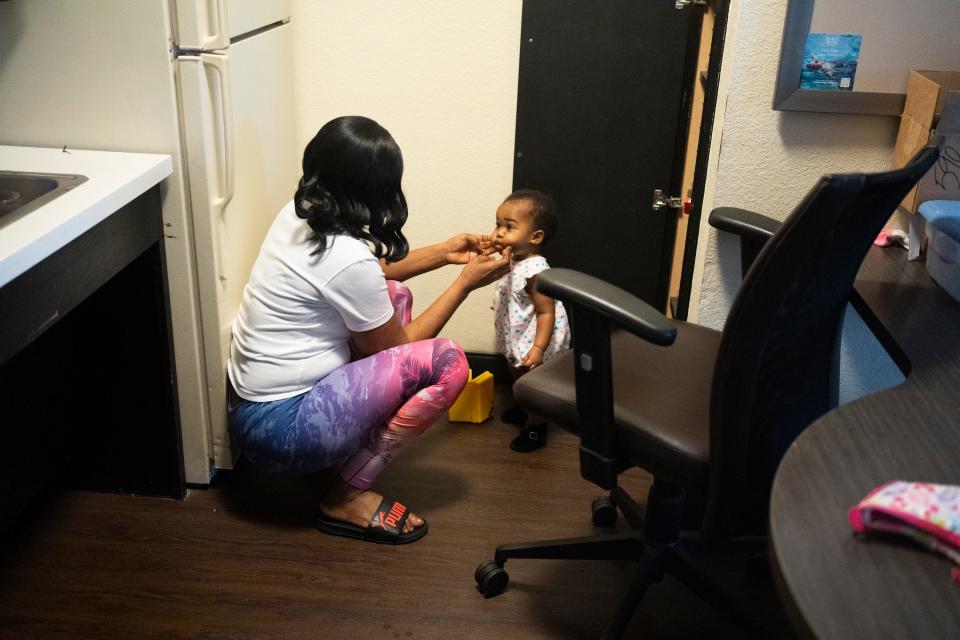
The city hired the same firm after the Latitude Five25 housing crisis last year — and some clients criticized it then, too.
The company did not respond to emailed questions from The Dispatch. Jones, from the city's Development Department, said the firm dedicates five employees to Colonial Village cases and is “highly responsive” to clients, in her experience.
“The need in this situation is extraordinary, and we will have to continue to look for ways to better communicate, engage and assist these families — this is true for all of the organizations involved,” not just R.H. Brown & Co., Jones said.
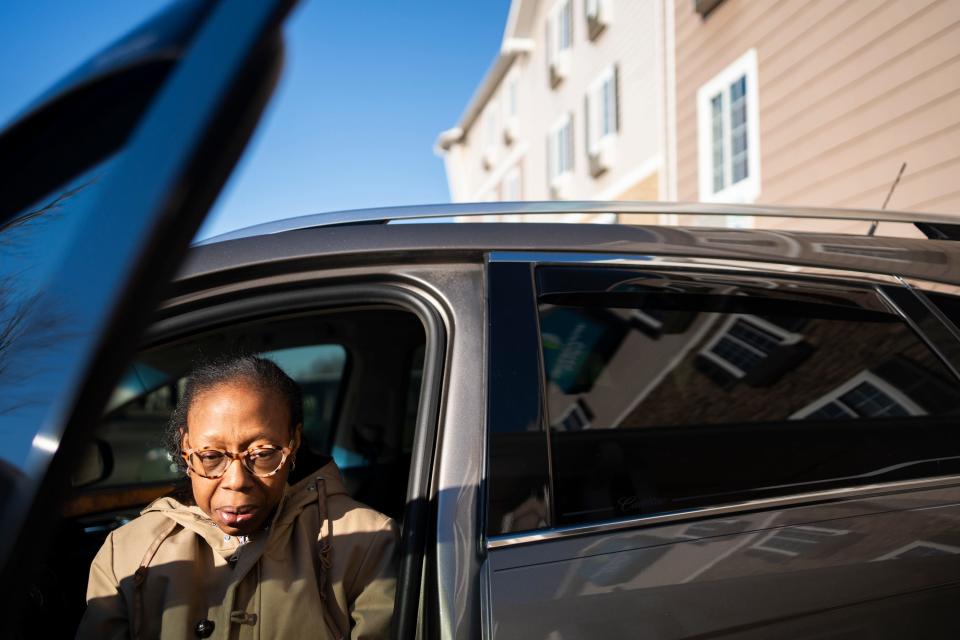
New housing vouchers are available — but there are still challenges
Some Colonial Village displaced families may be eligible for long-term rental assistance using new federal housing vouchers from the Columbus Metropolitan Housing Authority, Jones said.
“We are currently working through (eligibility) criteria compared to the documentation that the households have in order to determine who would qualify,” she said.
A spokesperson for CMHA said the agency has issued three new vouchers to former Colonial Village residents, and it is still determining with the city how many total vouchers will be issued.
Although vouchers provide guaranteed rent and landlords are required by local law to accept them, longtime voucher holders say they still face obstacles in finding a place to live.
Cynthia Wray, 52, is one of about 16 households who were using a Section 8 housing choice voucher at Colonial Village, according to CMHA.
But, like many of the Haitians, she is still searching for a permanent home. For now, she is living in a hotel room on Columbus’ Far North Side, crammed with her houseplants and oxygen canisters — which she needs to breathe because she has sickle cell anemia.
Wray said she found a new unit to move into on Columbus’ Southeast Side a few weeks ago, but the landlord was only willing to hold it for her for 48 hours — not enough time for CMHA contractors to inspect it, as required by the Section 8 program.
Wray is one of three Section 8 voucher holders from Colonial Village still living in temporary housing, according to CMHA.
Wray said the stress has caused sickle cell-related flare-ups, resulting in three trips to the emergency room since November — as many times as the entire previous year.
She wiped back tears as she spoke of living with uncertainty about what comes next.
“They say we have to be out of here by March 31 … and I still have no idea where I'm going to wind up at,” she said.
More: 'We have to be more ready than ever before': Shelter board CEO addresses housing crises
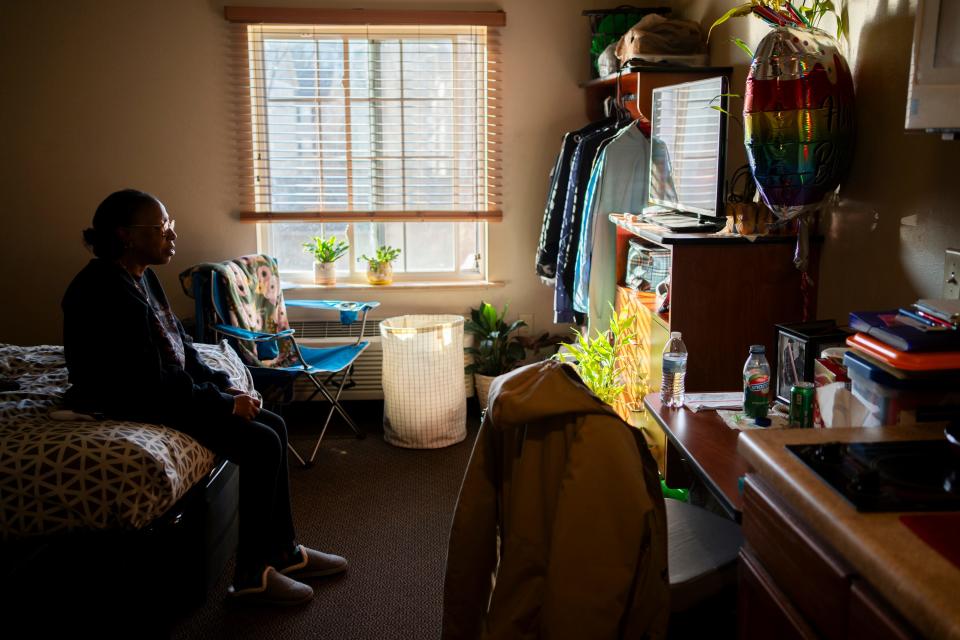
Peter Gill covers immigration, New American communities and religion for the Dispatch in partnership with Report for America. You can support work like his with a tax-deductible donation to Report for America at:bit.ly/3fNsGaZ.
pgill@dispatch.com
This article originally appeared on The Columbus Dispatch: Colonial Village housing crisis continues for Haitians, Americans

